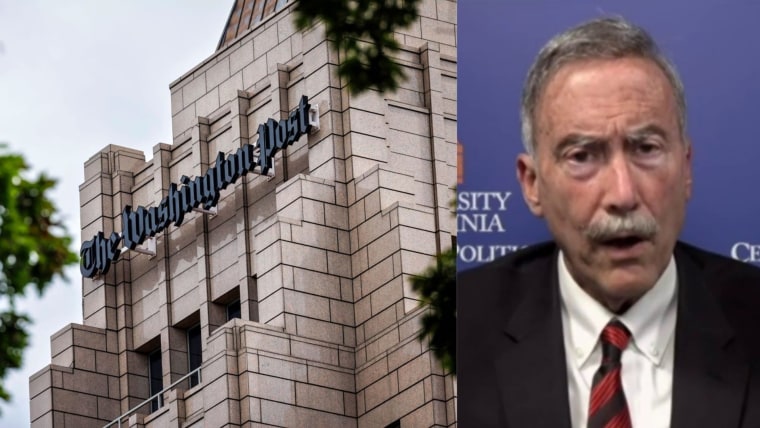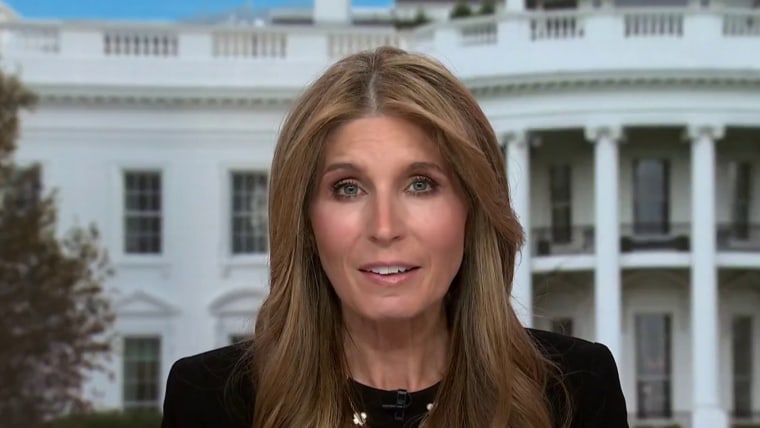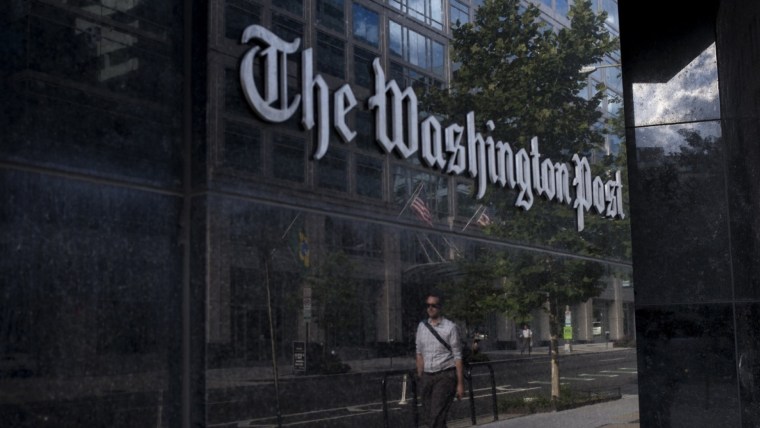The Washington Post has reportedly lost a stunning 10% of its subscriptions after its Friday announcement that, for the first time in decades, it would not be endorsing a presidential candidate for the election. The Post, in an apparent attempt to stop the bleeding, on Monday published an essay by the paper’s billionaire owner, Jeff Bezos, attempting to explain his decision.
According to the Post’s own reporting, citing interviews with people briefed on the decision, Bezos refused to publish the endorsement of Vice President Kamala Harris that the Post’s editorial board had written. (Bezos is the founder of commercial giant Amazon and the space company Blue Origin, both of which have contracts with the federal government.) Instead of a mea culpa about inappropriate meddling, Bezos in his essay offered a tour de force of nonsense that only makes him look even worse.
Bezos offered a tour de force of nonsense that only makes him look even worse.
Bezos contends that ending presidential endorsements is key to the mission of restoring the public’s trust in newsrooms. (Gallingly, Bezos refers to journalism as “our profession,” when he’s not a professional journalist, but one of the richest men in the world who bought a media outlet.) Here’s his core argument:
Presidential endorsements do nothing to tip the scales of an election. No undecided voters in Pennsylvania are going to say, “I’m going with Newspaper A’s endorsement.” None. What presidential endorsements actually do is create a perception of bias. A perception of non-independence. Ending them is a principled decision, and it’s the right one.
It’s a strange argument. Either a newspaper’s position matters or it doesn’t. How can an endorsement simultaneously affect how the public views a paper’s coverage and also have zero effect on voter thinking? In addition to his argument being contradictory, Bezos’ claim that endorsements are pointless is empirically wrong; political scientists have found that some newspaper endorsements, particularly when they’re surprising, can have a measurable effect on voters’ views of candidates.
Nothing about Bezos' intervention inspires confidence that the principle of newsroom independence was what was important.
Viewed through the prism of whether endorsements matter, endorsing Harris would be consistent with the Post’s stated allegiance to defending democracy. The Post could endorse Harris on the basis of loyalty to democracy, not the Democratic Party, and trust that the pro-democracy “bias” that the endorsement would betray is appropriate.
But, for the sake of argument, let’s say that editorials do create a perception of bias. That argument is, in the abstract, not without merit. At a newspaper, the reporters are supposed to dispassionately share factual information and analysis, and at many of those papers, a roster of opinion writers offer their personal opinions. Newspaper editorials sit awkwardly astride this bifurcation, offering the institution’s official opinions, and yet somehow the work of its reporters is expected to not be influenced. Philosophically, I think scrapping newsroom editorials — or at the very least, official candidate endorsements — makes plenty sense.

Yet nothing about Bezos’ intervention inspires confidence that the principle of newsroom independence was what was important to him. In fact, Bezos’ maneuvering had the opposite effect. The billionaire owner reportedly overrode his own editorial staff — days out from a high-stakes election in which the beneficiary of his move, former President Donald Trump, could easily win. And the paper announced that it wouldn’t endorse for president the same day a chief executive of Blue Origin met with Trump.
In his piece, Bezos claims the Trump meeting was coincidental and that his last-minute involvement was the result of his and the Post’s “inadequate planning.” That’s not good enough. In order for a decision not to endorse in presidential elections to not come across as meddling, Bezos would have had to have made it outside the election season. There is no way to disentangle his endorsement maneuvering from his potential concern about Trump’s reputation for favoritism and vindictiveness. And unless Bezos makes some kind of serious effort to create a firewall between him and the paper’s editorial policy, then he has set a precedent for meddling that nobody at the Post — or any of its readers — will forget.

As the top reader comment in response to Bezos’ essay put it: “Many of us trusted the Washington Post because we believed it operated independent of your personal editorial interference. Stop lecturing us about a problem you created.”
Taking a step back, Bezos’ actions highlight a structural problem. Even if he had pushed for a change in endorsement policy quietly in the off-season as a way to shield his businesses, that would still be a problem. The reality is that the independence of media outlets will always be at risk when they’re owned by billionaires or profit-seeking corporations.
Bezos’ ham-fisted move has generated a credibility crisis at his media outlet that no Harris endorsement could have ever had. He just definitively illustrated that the Post can only be as independent from his views as he wants it to be.

